Propaganda to business households
Ms. Nguyen Thi Lan (Tay Ho ward, Hanoi ), owner of a small grocery store in lane 89 Lac Long Quan, has always paid lump-sum tax. However, since the beginning of November, tax officers and marketing staff of some technology companies have introduced a number of applications and apps to guide the declaration and submission of electronic invoices.

“Many buyers are neighbors so there is no need for invoices, hand-to-hand sales, cash or QR code scanning for transfer. Therefore, if I issue an electronic invoice, I have to add another step in the declaration. If it is a mandatory regulation, I will comply, but it needs to be convenient and easy to use, just like bank transfers,” Ms. Lan shared.
Mr. Mai Son, Deputy Director of the Tax Department ( Ministry of Finance ) said that the Tax sector is making efforts to innovate management methods and implement policies for business households. In the context of digital transformation, the '60 days and nights' campaign is not only the task of the Tax sector, but also a bridge to help businesses approach the new form of tax management in a gentle and easy-to-understand way.
“Currently, there are more than 110 e-invoice software providers that have connected with the Tax Department, many of which have implemented support packages or are free for business households. The support of technology enterprises plays an important role. Among these, we are most interested in the group of wholesale and retail businesses in mountainous, remote and isolated areas, where access to technology and infrastructure is still difficult,” said Mr. Mai Son.
According to the survey, currently, digital technology businesses operating in this field are relying on existing platforms to approach existing customer files and expand new customer groups on the basis of accompanying tax officials in the process of advocacy and propaganda.
Some technology companies have also launched campaigns, mobilizing human resources to approach customers who are business households, the subjects affected by policy changes, with free trial policies and incentives for a certain period of time.

Sapo representative said that the unit has coordinated with associations and tax agents to deploy a nationwide network of consulting and technical support, providing management software, electronic invoices and free declaration instructions for business households in the initial period of conversion. This is considered one of the activities that go along with the policy, contributing to promoting digital transformation in the tax sector and helping taxpayers get used to the form of electronic declaration.
According to Ms. Nguyen Thi Minh Khue, Vice Chairwoman of Sapo Board of Directors, the goal of the program is to help business households operate more compliantly and transparently; at the same time, prepare the foundation for converting to an enterprise model when qualified. This is not only technology support, but also an activity aimed at improving the digital capacity of the individual economic sector.
Responding to the 60-day peak transformation program of the Tax industry, Sapo officially introduced the free solution set Sapo 6870 including: Sales management, electronic invoice issuance, automatic tax declaration right on mobile phones. In particular, Sapo provides a completely free 24-month software support package, 2,000 electronic invoices and 3 months of digital signature use for business households participating in the program. This is a practical action and a social commitment, affirming the spirit of accompanying 5 million business households nationwide in the key transformation plan by the end of 2025.
Currently, Sapo has deployed a network of more than 1,000 experts, partners and consultants across the country, ready to accompany local Tax Departments in supporting business households in converting to a tax declaration model.
Previously, technology company MISA announced a program to give away free MISA eShop software to 2 million business households to support the transition to the declaration method.
According to the program, MISA offers 3 months of free use of MISA eShop software, along with 1 year of free use of digital signature and 5,000 electronic invoices. The "6 in 1" toolkit supports business households from sales management - invoice issuance - digital signature - accounting - tax declaration - direct connection to the Mtax system, helping the process of "declaration, signature, payment" on a single platform.
Subgroup survey
During the 60-day transformation campaign, on the part of the authorities, in addition to propaganda and consultation, the Tax Department also conducted a survey of business households on their facilities, ability to use technology, level of understanding of tax policies and difficulties in the declaration process. Based on the survey results, business households will be divided into appropriate support groups, especially those still facing difficulties or living in areas affected by natural disasters and floods, helping them to quickly stabilize production and business.
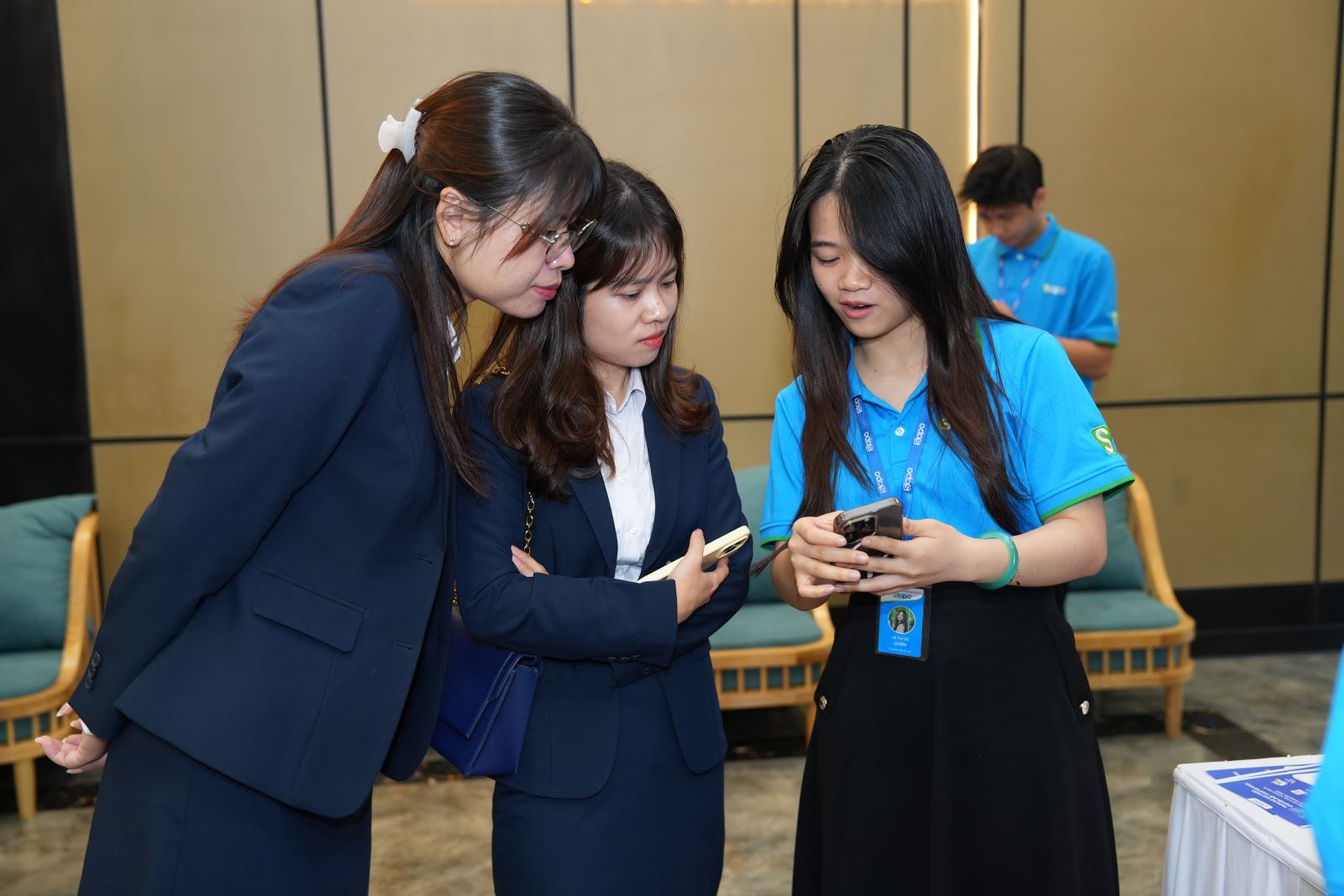
Currently, the country has more than 3.6 million tax-managed business households, of which about 2.5 million pay lump-sum tax. This is an important economic force but still has many limitations in digital skills. Therefore, the "60 days and nights" campaign is an opportunity to improve the digital capacity of the individual economic sector, helping them adapt to modern technology and tax management methods.
In November 2025, the Electronic Tax Experience Portal will allow business households to test operations; from January 1, 2026, the Tax Industry Knowledge Portal will come into operation, providing online consultation and answers, to reduce costs, shorten time and improve transparency.
Ms. Nguyen Thi Cuc, President of the Vietnam Tax Consultants Association (VTCA), assessed that the participation of technology enterprises in supporting taxpayers demonstrates a three-party coordination model between the State - enterprises - associations, helping to implement policies more quickly, widely and effectively. "If the Tax authority plays a constructive role, then technology enterprises are the extended arm to bring policies into real life," she commented.
From July 1, 2025, business households with revenue of 1 billion VND/year or more must use electronic invoices. From January 1, 2026, the transfer of lump-sum tax to tax declaration by business households is the next important step in modernizing tax management. When declaring in accordance with regulations, business households will easily manage revenue, costs and profits, enhance their reputation with customers and partners, and have convenient access to banks and investment funds.
Ms. Cuc also shared a practical example of a sugar producer in Thai Nguyen who, after converting to a business, was able to deduct input tax and reduce tax obligations, thereby expanding production and increasing profits. For those doing business online, full declaration will reduce tax rates compared to non-transparent income, while reducing legal risks and creating conditions for long-term development.
From the perspective of e-commerce, Mr. Nguyen Ngoc Dung, Chairman of the Vietnam E-commerce Association, said that after the COVID-19 pandemic, e-commerce has grown strongly, leading to the increase of millions of online businesses. However, their tax obligations still have many shortcomings. Switching to declaring and using electronic invoices helps businesses to be more proactive, transparent and equal, creating a fair and modern business environment.
Mr. Nguyen Phu Tien, Deputy Director of the Department of Digital Economy and Society (Ministry of Science and Technology) said: The cooperation and coordination with the Ministry of Finance, Tax authorities, associations and technology enterprises are key factors to realize the goal of comprehensive digital transformation. If you want to go fast, go alone, if you want to go far, go together. Digital transformation is a long journey, requiring the cooperation of all parties from the State, enterprises to the business household community. The shift from lump-sum tax to declaration is a step towards a digital-based management model that requires parties to change their operating methods.
In the recent transformation process, the business sector with economic potential has deployed digital transformation applications. Meanwhile, the most difficult in digital transformation today is business households. Recently, groups of business households have also taken initial steps to get acquainted such as transferring money via bank accounts, cashless payments by scanning QR codes, promoting sales on e-commerce platforms, livestreaming, etc. Applying tax declaration through electronic invoices will be the next step of digital transformation.
However, this transformation requires the support of local authorities in supporting businesses in rural and mountainous areas to access suitable, popular, and easy-to-use technology.
Source: https://baotintuc.vn/xa-hoi/tao-buoc-chuyen-doi-so-toi-nhom-ho-kinh-doanh-khi-bo-thue-khoan-20251117103523843.htm





![[Photo] General Secretary To Lam and National Assembly Chairman Tran Thanh Man attend the 80th Anniversary of the Traditional Day of the Vietnamese Inspection Sector](https://vphoto.vietnam.vn/thumb/1200x675/vietnam/resource/IMAGE/2025/11/17/1763356362984_a2-bnd-7940-3561-jpg.webp)


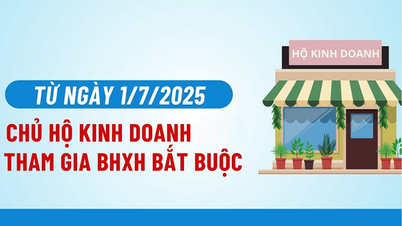
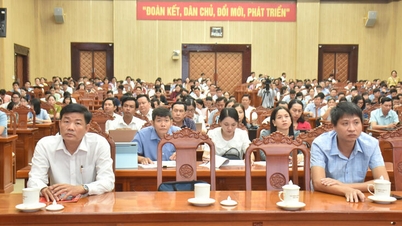



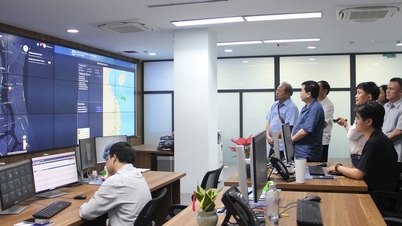

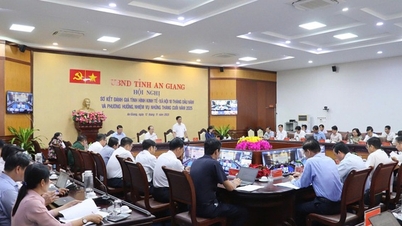

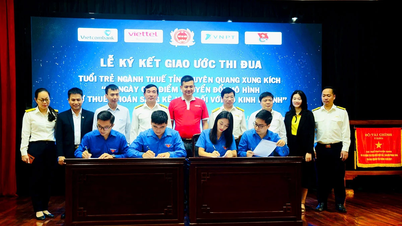


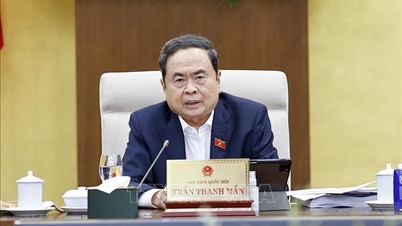










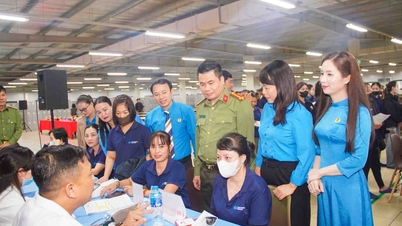
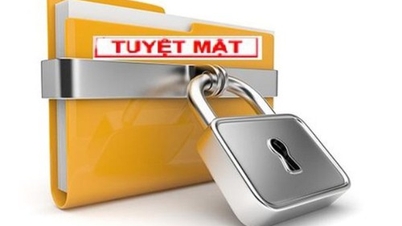
























































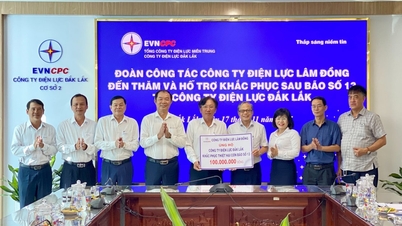

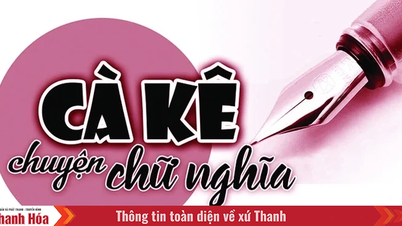



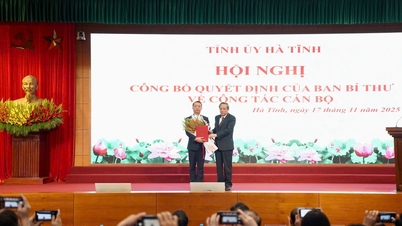

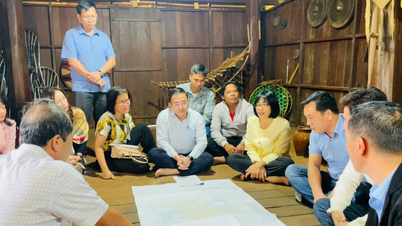















Comment (0)